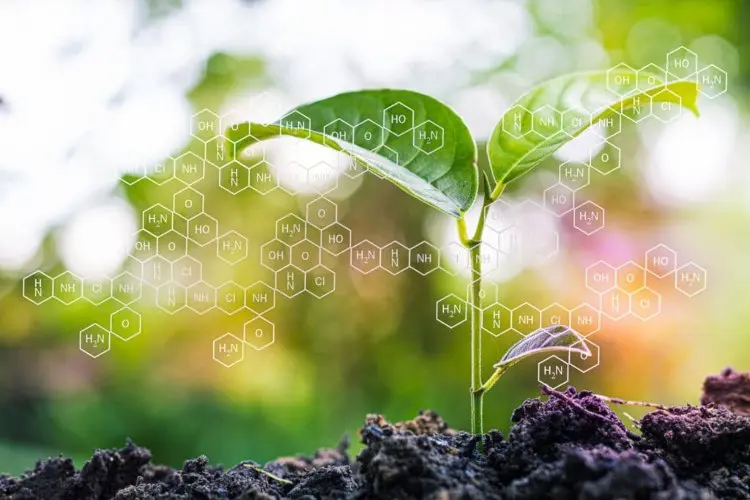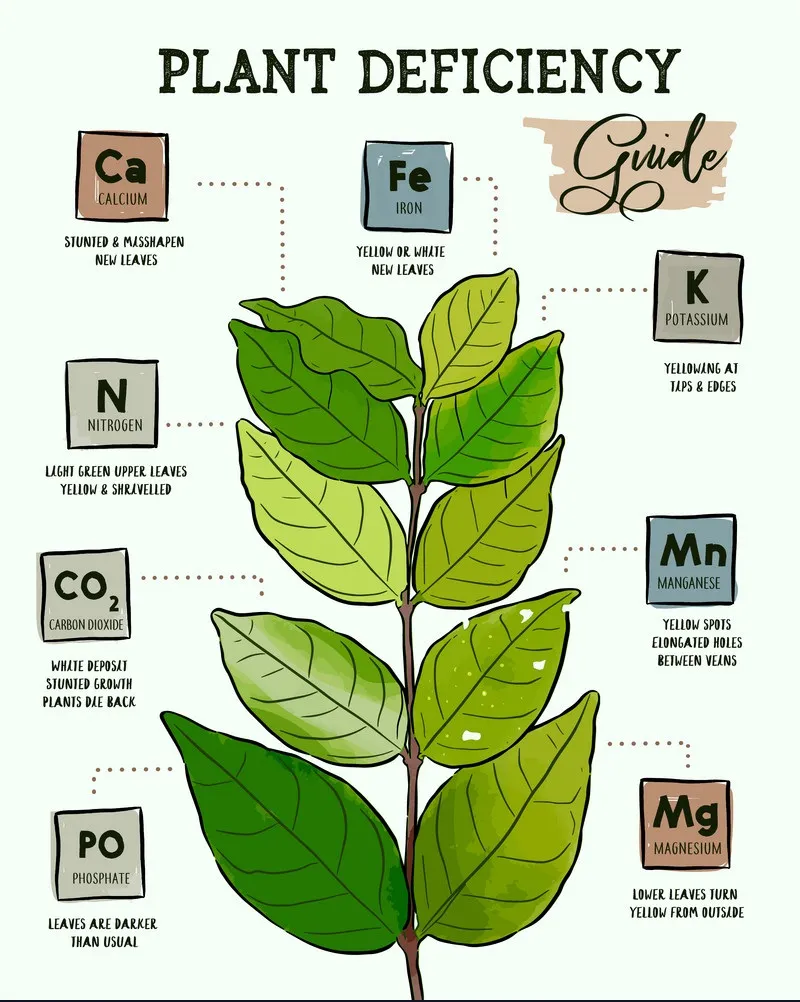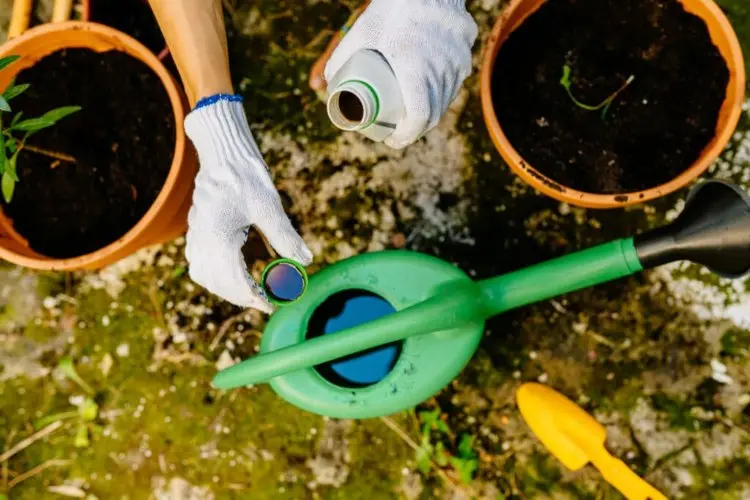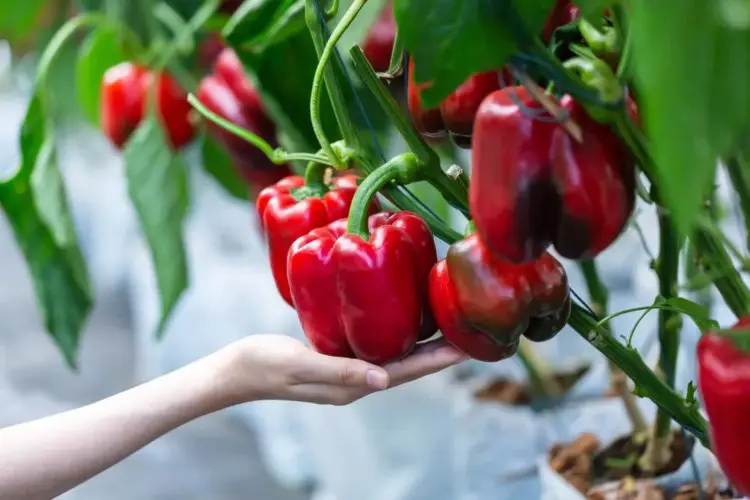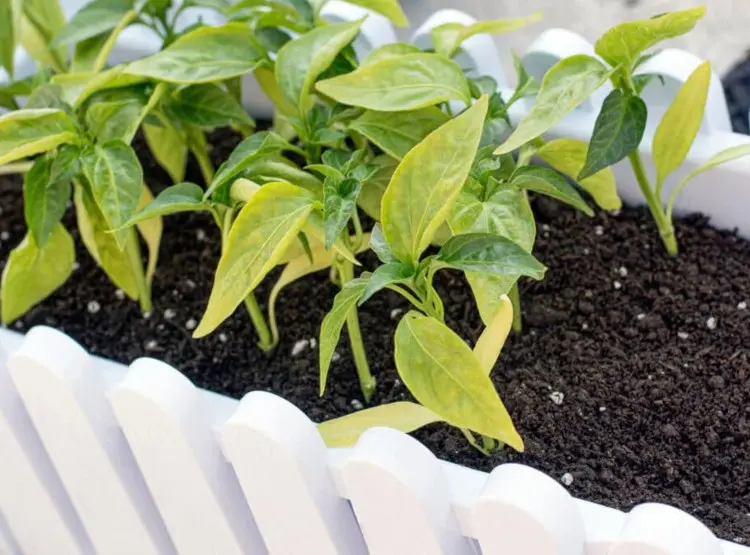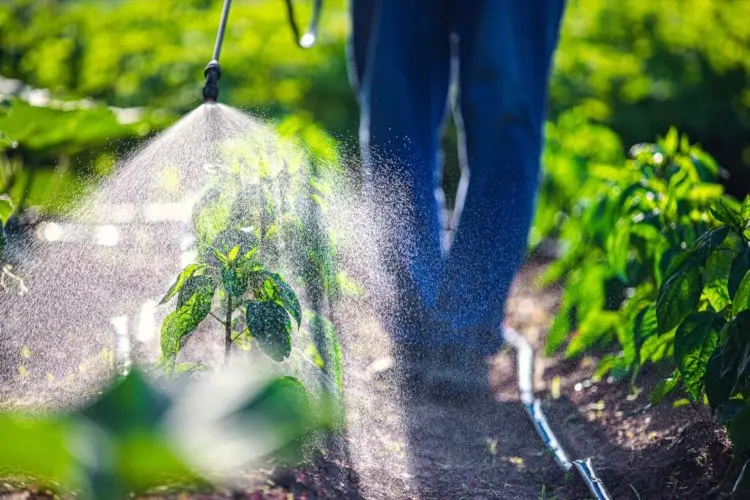Sweet peppers are one of the highly nutritious crops in the kitchen garden and need a lot of nutrients during the flowering and ripening period. Of course you can invest in a commercial fertilizer, but do you know that there are sustainable alternatives? We shall list 7 home remedies you can use to fertilize peppers.
Fertilize Peppers: Cover NPK Needs with Home Remedies
When it comes to fertilization, several factors have a crucial role. On the one hand you have to cover the increased nutrient requirements of the plants, on the other hand you have to supply the right micro and macro elements. Commercially available fertilizers therefore rely on a combination of magnesium, phosphorus, potassium and nitrogen. NPK fertilizers have different numbers that show the concentration of each nutrient. Obviously, the higher the number, the more concentrated the nutrient is. This composition is suitable for tomatoes as well as for peppers and chilies.
However, these fertilizers are not adaptable. What does that mean? Bell pepper plants have increased nitrogen requirements in the growth phase. However, when they form flowers, they need more potassium. Too much nitrogen can do the opposite of what is desired – the plant will grow but not bear fruit. More phosphorus and potassium will strengthen the plant and encourage fruiting.
Recognizing Nutrient Deficiencies: These Are The Signs!
Discolored leaves, wilted plant: You should be able to recognize these nutrient deficiencies quickly. This is the only way the hobby gardener can fix them in time. Here are the most common deficiencies:
- Crippled and smaller new leaves: Calcium deficiency
- Yellow white new leaves: iron deficiency
- Yellow-edged leaves: Potassium deficiency
- Light green, crippled leaves at the top of the plant: nitrogen deficiency
- Yellow spots and long cracks between the veins: manganese deficiency
- The lower leaves turn yellow from the outside in: magnesium deficiency
Nutrient deficiencies can develop quickly, but only become noticeable after some time. To prevent them, you should fertilize your plants regularly during fruiting and ripening. Most home remedies can be used as a substitute for liquid fertilizer, although some can also be used as slow-release fertilizers. If you want to provide additional care for your bell pepper plants, use sprays with seaweed extract and spray the leaves of the plants. Alternatively, you can use a liquid fertilizer with fish scales or compost tea.
Fertilize Peppers: Coffee Grounds Promote Flowering
Coffee grounds contain valuable minerals, phosphorus and potassium and can promote fruit formation. However, it should be applied sparingly and only during the flowering phase. This is because coffee grounds also contain high levels of nitrogen. It is best to work the coffee grounds directly into the root area. So it will act like a slow-release fertilizer and gradually release nutrients.
Peppers Grow Faster With Tea than with Liquid Fertilizer
Tea has a similar effect as coffee grounds, but contains less nitrogen and its effect is equivalent to that of liquid fertilizer. It is best to pour hot water over 2 tea bags and let them steep for about 20 minutes. Then add the tea to the irrigation water and mix the contents of the tea bags into the soil.
Decoctions Made From Banana Peels and Crushed Egg Shells Keep Plants Healthy
Banana and egg shells provide calcium and potassium and keep pepper plants healthy during fruiting. A decoction can be prepared for this purpose. First, crush the banana peels and add them to 0,5 gallons/2 liters of water. Leave them in the bucket, covered, for about 3 days. Then either water in which the eggs were boiled is added to the decoction, or egg shells are crushed and added to the banana water. In the first case, the mixture is ready and you can fertilize the plants with it. It is also very suitable for other high-yielding plants such as tomatoes. In the second – when raw, crushed eggshells are added to water – you have to wait for about 20 days.
Improve the Taste with Worm Tea
Every amateur gardener has experienced it at least once – bell pepper fruits actually look ripe, but have a watery taste. Worm compost supports the formation of flavor-giving substances and the fruits contain more fructose, glucose, magnesium, calcium and vitamin C. So the peppers not only taste better but are healthier. Another advantage of worm tea is that it provides the soil with beneficial microorganisms that can improve it.
In order for it to have its full effect, worm tea is applied as a liquid fertilizer shortly after preparation. For this purpose, 1 tablespoon of worm humus is placed in an empty tea bag and then added to 0,2 gallons/1 liter of decalcified, non-chlorinated water. Leave it in the water for up to 10 hours, stirring it every hour. Then use it to fertilize the plants. Over-fertilization is not possible with this method.
Epsom Salt Provides Magnesium to the Bell Pepper Plants
Epsom salt is ideal for peppers in containers, which often suffer from magnesium deficiency. The trace element is gradually washed away from the potting soil with every watering and rain. To cover the need, you can dissolve 1/4 tsp Epsom salt in 0,2 gallons/1 liter of water and use it to water the plants.
Pepper plants often suffer from magnesium deficiency – sure signs are discoloration of the leaves and slow growth. To remedy this, you can use Epsom salts every two weeks. But be careful – more than 3 doses in summer can damage the plants.
Fertilize Peppers with Fish Scales and Shorten the Ripening Period
There are also home remedies that can surprise you with their effect. Fish scales contain calcium and phosphorus, which plants need for cell division. Fish scales can supply these valuable nutrients, particularly during fruit formation. It is best to mix about half a handful of fish scales into the soil right at the start of fruiting.
Another option is to add the fish scales in 2 cups of water and let them steep for about 2 hours. Then take the fish scales out of the water, add neem oil and spray the leaves of the pepper plants early in the morning. On the one hand, the neem oil can help with an aphid or caterpillar infestation and, on the other hand, it ensures that the spray does not drip off but sticks to the leaves.
Wood Ash for Strong Roots During Drought
Wood ash can help root development. It contains potassium, an important mineral that supports the transport of water and nutrients in plants. However, one should not overdo it, because too much of a good thing can damage the plant.
Avoid Over-Fertilization
Brown or reddish leaves and yellow veins are signs of overfeeding. If the leaves look burnt and crippled, then you should stop fertilizing for a short time. Yellow or even white leaves are a sign of nutrient deficiency. You should therefore take a very close look and regularly check the plant so that problems can be solved in time.
Regular watering is also very important so that the plants can absorb the nutrients properly. The effort is definitely worth it – because in the end you can enjoy the big, red fruits.

